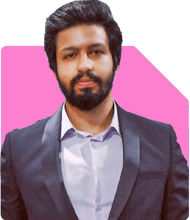Mohit Arora |39 Answers |Ask -Follow
Dating Coach - Answered on Feb 19, 2024

Hello How to control mind tell me about EFT technique i am unmarried but got thinking of sex... Please help on this
You may like to see similar questions and answers below
Anu Krishna |835 Answers |Ask -Follow
Relationships Expert, Mind Coach - Answered on Jun 23, 2023
Anu Krishna |835 Answers |Ask -Follow
Relationships Expert, Mind Coach - Answered on Nov 15, 2023
Anu Krishna |835 Answers |Ask -Follow
Relationships Expert, Mind Coach - Answered on Feb 12, 2024
Love Guru |187 Answers |Ask -Follow
Relationships Expert - Answered on Apr 16, 2024
Ramalingam Kalirajan |1270 Answers |Ask -Follow
Mutual Funds, Financial Planning Expert - Answered on May 02, 2024
Ramalingam Kalirajan |1270 Answers |Ask -Follow
Mutual Funds, Financial Planning Expert - Answered on May 02, 2024
Ramalingam Kalirajan |1270 Answers |Ask -Follow
Mutual Funds, Financial Planning Expert - Answered on May 02, 2024
Patrick Dsouza |204 Answers |Ask -Follow
CAT, XAT, CMAT, CET Expert - Answered on May 02, 2024
Ramalingam Kalirajan |1270 Answers |Ask -Follow
Mutual Funds, Financial Planning Expert - Answered on May 02, 2024
Ramalingam Kalirajan |1270 Answers |Ask -Follow
Mutual Funds, Financial Planning Expert - Answered on May 02, 2024
Ramalingam Kalirajan |1270 Answers |Ask -Follow
Mutual Funds, Financial Planning Expert - Answered on May 02, 2024
Ramalingam Kalirajan |1270 Answers |Ask -Follow
Mutual Funds, Financial Planning Expert - Answered on May 02, 2024
Ramalingam Kalirajan |1270 Answers |Ask -Follow
Mutual Funds, Financial Planning Expert - Answered on May 02, 2024
Ramalingam Kalirajan |1270 Answers |Ask -Follow
Mutual Funds, Financial Planning Expert - Answered on May 02, 2024
























